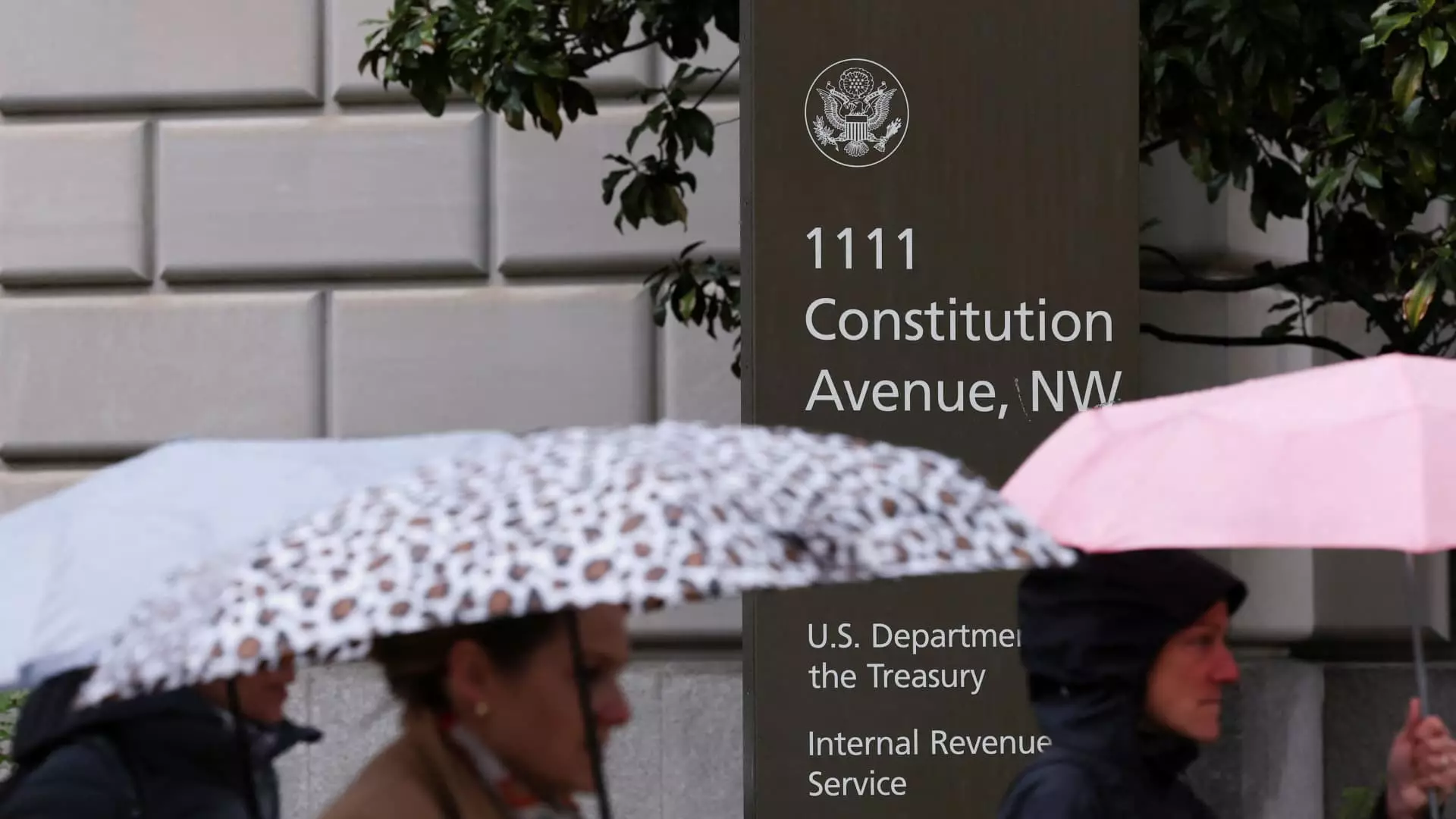The recent decision by the IRS to lay off a significant portion of its workforce, particularly those youthful and tech-savvy employees hired to tackle the labyrinth of tax returns filed by the wealthy, marks a dark chapter in America’s pursuit of equitable tax compliance. In an era where income inequality is under intense scrutiny, the irony of a cash-strapped agency, bolstered by Congress’s $80 billion funding, is striking. The agency’s inability to retain skilled employees like Wesley Stanovsek, who specialized in complex tax schemes involving trusts and partnerships, raises alarming questions about its viability. With approximately one-third of IRS personnel set to exit through layoffs and buyouts, high-net-worth individuals are bracing for an undisturbed quiet on the audit front, leaving the tax landscape vulnerable to exploitation.
This is not merely bad news for the IRS; it signals a tangible retreat in government oversight where the wealthy can conceal their income more efficiently. As lawyers and accountants report an unprecedented decline in audits, taxpayers are understandably questioning the importance of filing altogether. The response from the financial experts is consistent: while some may find solace in the diminishing presence of IRS agents, failing to file is a risky gamble with long-term repercussions. The specter of heightened scrutiny looms larger than ever for those who would rather rely on an overstretched, automated system than engage with seasoned professionals.
The High Cost of Budget Cuts
The historical context for this crisis cannot be ignored. The devastating budget cuts initiated in the late 1990s and early 2000s sparked a sea of esoteric tax schemes that would haunt the IRS for years. Now, those very same conditions are resurfacing. The current iteration of budget cuts threatens to bleed the IRS dry, creating an environment ripe for sophisticated tax shelters that can sidestep minimal oversight. Some estimates suggest that if current trends continue over the next decade, a staggering $500 billion in tax revenue may vanish, primarily affecting collections from wealthy individuals — an insidious trend that disproportionately burdens the middle class and low-income earners who do not have access to tax-avoidance strategies.
With cases like those of Jack McCumber, who worked on audits involving over $150 million under scrutiny, being sidelined due to personnel shortages, the message is clear: tax accountability for the privileged class is swiftly eroding. The Internal Revenue Service once prided itself on its ability to generate revenue through enforcement; those days are becoming a distant memory.
The IRS in Technological Chains
Compounding the IRS’s woes is the obsession with integrating AI technologies into tax enforcement. While Treasury Secretary Scott Bessent insists that AI will catapult the agency into a new era of efficiency, the reality is stark. Though AI can analyze data at impressive speeds and identify anomalies in tax filings, it lacks the essential human touch required for nuanced investigations. As stated by various tax attorneys, isolation from human input can lead agents to reach incorrect conclusions about taxpayers and their obligations. Furthermore, in the whirlwind of algorithm-driven decision-making, justice loses its context, with those unfairly flagged left to navigate this bureaucratic labyrinth without guidance.
AI can serve as a double-edged sword in tax analytics. It may flag suspicious activities and anticipate blatant abuses but falls dreadfully short when nuanced understanding and interpersonal skills are required for follow-up investigations. Thus, while the agency superficially appears to be climbing towards modernization, it may instead be digging its own grave in terms of equity and fairness in tax collection.
The Future of Taxation: A Class Divide
As these transitions unfold within the IRS, the most concerning trend is the overwhelming impact on tax equity. The wealthy are on the verge of re-entering an era reminiscent of the pre-2000s tax landscape, marked by high-stakes avoidance strategies and negligence toward lower-income brackets. Those who can afford sophisticated tax advisors and complex loopholes will continue to flourish unchallenged, while ordinary citizens with less expertise feel the increasing weight of their proportional tax responsibilities.
The ramifications extend far beyond just lost revenue—they permeate social fabric, magnifying existing inequalities that challenge the very core of our democratic ideals. In this new age of tax enforcement, the scales appear irrevocably tipped, favoring the affluent while the IRS groans under the burden of ineffectiveness. As we venture further into 2024, a lack of critical oversight of affluent taxpayers paints a worrying picture of the future of tax policy in America, one that may redefine in real terms what it means to be tax compliant. With each passing day of ineffectual governance, the rift only grows, leaving a bitter taste in the mouths of those who play by the rules.

